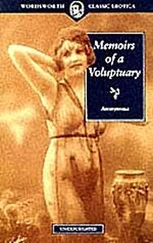“I tried to get her to draw upon herself, to go into her own experiences, but I don’t believe she ever did. Marilyn denied who she really was, except for her sex appeal which she had confidence in. She knew it worked—and she was as graceful with her appeal as a swimmer or a ballerina.”
“I want to recreate you,” Natasha told Marilyn. “I shall mold you into the great actress I suspect—though I must say I do not know—you can be. But to do so,” she told her, “you must submit to me. Do you understand?” Her Sapphic intentions were clear.
Marilyn understood. However, she was not going to comply. She had submitted to Joe Schenck and regretted it, even if it did serve a valuable purpose in her career. She quickly determined that she was not going to do the same for Natasha Lytess. Still, she didn’t want to say no—not yet.
In the environment between an acting teacher and student, many emotions come into play. Student and teacher access feelings and transfer them into characters, into roles—and, sometimes, into each other. One day, according to Natasha’s unpublished memoir, she embraced Marilyn and told her, “I want to love you.” Marilyn’s response was, “You don’t have to love me, Natasha—just as long as you work with me.” For years, Marilyn was used to giving women what they wanted—Ida, Gladys, Grace. It was as if she had now drawn a line.
Helena Albert was a student of Natasha’s at this time, and also a confidante. “Natasha often blurred the lines,” she recalled. “She did with me, as well. But when Marilyn came into the picture, everyone else paled in comparison. I felt that Marilyn should have backed away when she knew how much Natasha cared for her, but instead I think she used it to her advantage. It was torture for Natasha—but not so bad for Marilyn. She had a good teacher, a smart woman in her life—someone to emulate, to learn from. You can’t blame her for wanting it to last. I actually cornered her about it.”
According to Helena, she went to Natasha’s office one day for a meeting. Just as she got to the cottage, Natasha was leaving it in tears. “I can’t see you now,” she said as she brushed by. Helena went into the cottage and found Marilyn sitting in a chair, staring into space with a faraway expression.
“Is everything all right?” she asked Marilyn.
Marilyn just continued to look straight ahead.
“Marilyn? Is everything all right?”
“No, it’s not ,” Marilyn finally said, as if coming to her senses. “I’m afraid Natasha doesn’t know what the word ‘no’ means. And I’m tired of having to say it to her over and over again. Why can’t we just do what we do best—act?”
“It’s more complicated than that,” Helena allowed. “And you know it, Marilyn.”
“No, it’s not,” Marilyn said. She rose and faced her. “You don’t always get what you want in this life, Helena,” she said. “I have wanted many things and have not gotten most of them. Do you know what I think? I think Natasha is spoiled. I think she has always gotten what she’s wanted, and doesn’t know how to handle it when she can’t.”
It was clear not only that Marilyn had lost her patience with Natasha, but also that she was cold to her and not very empathetic about her feelings. After spending so many years suppressing her emotions and trying to be what others wanted her to be, perhaps she didn’t understand why Natasha couldn’t do the same thing. She gathered her things and, before leaving, turned to face Helena. “If you see her, tell her I’m sorry,” she said, “but there’s nothing I can do about it. Tell her I hope she’ll continue with me, but if not, I will try to understand.” With that, she took her leave.
“The truth is, my life, my feelings were very much in her hands,” Natasha Lytess said many years later. “I was the older woman, the teacher, but she knew the depth of my attachment to her, and she exploited those feelings as only a beautiful, younger person can. She said she was the needy one. Alas, it was the reverse. My life with her was a constant denial of myself.”
And thus it would remain—for six more long years.
Disappointment
O n March 14, 1948—just a week after Marilyn signed with Columbia—her beloved Aunt Ana passed away from heart disease. She was sixty-eight. Oddly, she was buried in an unmarked grave at Westwood Memorial Park, though a small plaque was put on it a few years later. It’s been published in the past that Marilyn did not attend the services, that she was too busy with her budding career. This is not true, according to her half sister Berniece’s memory. Marilyn would never have missed Ana’s funeral. Actually, she and Grace and Doc Goddard had a private viewing of Ana’s body, and then a tearful Marilyn slipped away before the other mourners arrived. She later said of Ana, “She was the one human being who let me know what love is.” Ana left a book for Marilyn called The Potter , along with a note: “Marilyn, dear, read this book. I don’t leave you much except my love. But not even death can diminish that, nor will death ever take me far away from you.”
Marilyn Monroe would say that she was “miserable” after the death of Ana because, as she put it, “I was left without anyone to take my hopes and my troubles to.” It was probably fortunate that she had her career to turn to at this time, as she began working on a low-budget musical, her first film for Columbia, Ladies of the Chorus . In it she had a leading role in which she sang two solo numbers—“Every Baby Needs a Da Da Daddy” and “Anyone Can See I Love You”—as well as two duets with Adele Jergens. There was also a certain amount of dancing involved in her work in this film, a real challenge for Marilyn. This was a strange little movie, just an hour long, and it took only ten days to film, but Marilyn was surprisingly good. Her singing voice was a revelation. However, when released later in the year, the film did nothing for Marilyn’s career. She would be dropped from Columbia soon after its release, much to her disappointment. “I went to my room and lay down on my bed and cried,” she recalled. “I cried for a week. I didn’t eat or talk or comb my hair. I kept crying as if I were at a funeral burying Marilyn Monroe. I hated myself for having been such a fool and having had illusions about how attractive I was. I got out of bed and looked in the mirror. Something horrible had happened. I wasn’t attractive. I saw a coarse, crude-looking blonde.”
Marilyn moved into a double room at the Hollywood Studio Club in June 1948, where she paid twelve dollars a day for room and board. She needed to save money—things weren’t going as well as she had hoped—and this seemed like the best way to do it. She didn’t like the place, though, because it reminded her of the orphanage. She was dating a man named Fred Karger, who was the musical supervisor of Ladies of the Chorus , and it wasn’t going well.
Though these were dark days, Marilyn tried to keep a stiff upper lip. She had been relegated to doing TV commercials by the end of the year and felt that perhaps her movie career was over. Short-lived and over. “But there was something that wouldn’t let me go back to the world of Norma Jeane,” she recalled. “It wasn’t ambition or a wish to be rich and famous. I didn’t feel any pent-up talent in me. I didn’t even feel that I had looks or any sort of attractiveness. But there was a thing in me, like a craziness that wouldn’t let up. It kept speaking to me.”
“You never know when you’ll get that big break,” Natasha always told Marilyn. “And when it happens, you’ll know it.” Indeed, “it” would happen for Marilyn at the end of the year when she attended a New Year’s Eve party at the home of movie producer Sam Spiegel. During the course of the evening, she was introduced to a William Morris agent named Johnny Hyde. In the instant she extended her hand to shake his, a major shift took place in her world… and things would never again be the same.
Читать дальше












